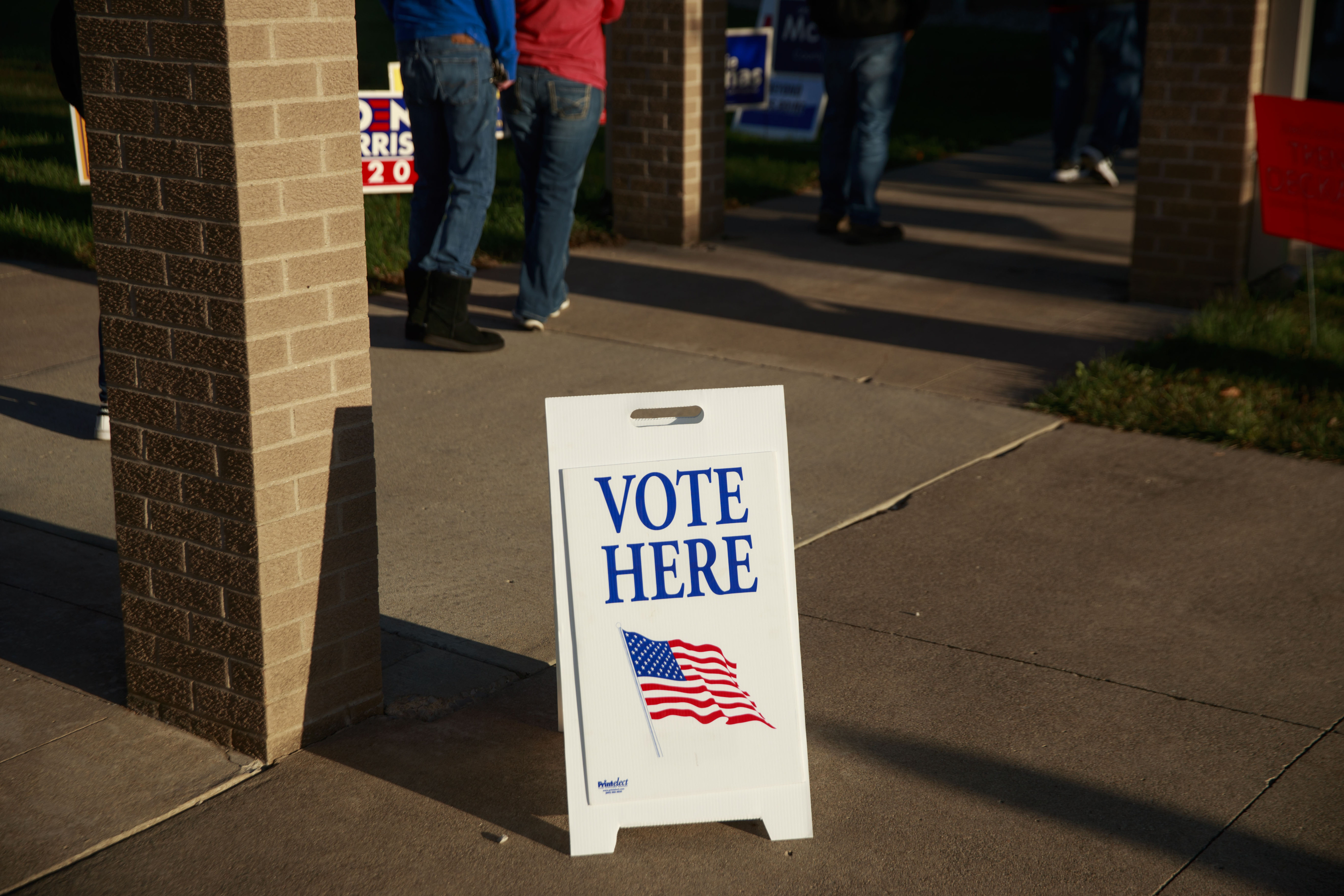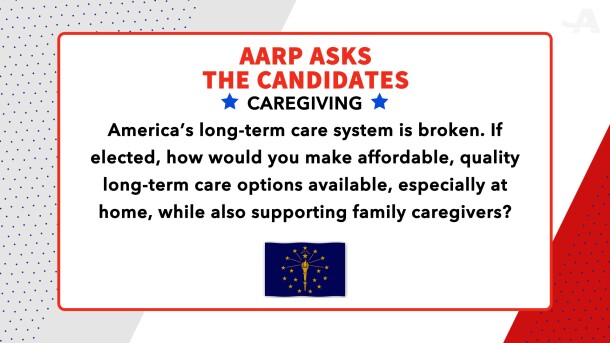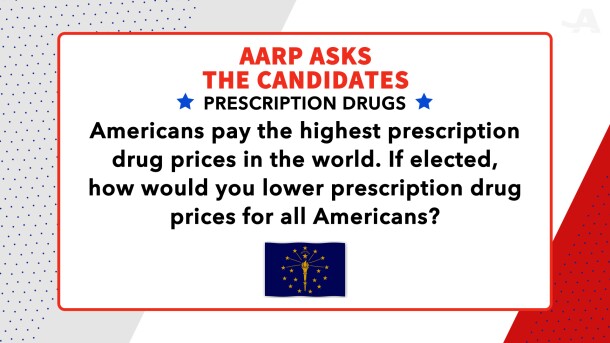AARP Hearing Center

Indiana voters will decide several closely watched races on Nov. 8, including the U.S. Senate contest between Thomas McDermott Jr., mayor of Hammond, Indiana, and incumbent Sen. Todd Young. AARP Indiana spoke with the candidates to learn where they stand on key issues for 50-plus voters. Here's what they had to say:
Social Security is a promise that must be kept. If elected, how would you protect earned Social Security benefits for the future?

McDermott Jr.: At the age of 16, I went to work at McDonald's and I made my first Social Security payment. I did that with the expectation that one day, many decades in the future, that trust fund will be there to take care of me when I need those Social Security payments back. It's a promise we made to Americans, and it's a promise that I intend to keep as Indiana's next U.S. Senator. The way we keep that is by protecting that fund to make sure it's solvent and to make adjustments so that the 63 million Americans that rely on Social Security payments aren't losing their purchasing power to the cost of living adjustments that aren't keeping up with inflation. It's a promise we made to Americans, and it's a promise I intend to keep as Indiana's next U.S. Senator: protecting the Social Security fund.
Young: Social Security needs to be protected. We've gone too long without a bipartisan solution advancing through the Congress. That's why I've been leading the way to ensure that we impanel bipartisan rescue committees to come up with a solution to save Social Security and ensure that that receives expedited consideration in the U.S. Senate.
America's long-term care system is broken. If elected, how would you make affordable, quality long-term care options available, especially at home, while also supporting family caregivers?

Young: America's long-term care system is broken, and as I talk to Hoosiers, most want to receive their treatment in a home setting surrounded by loved ones. They should be able to receive their home care through Medicare, which I have proposed. I've actually authored legislation after consulting with Hoosiers that would allow them to receive their nursing services in their home as well. This has been endorsed by the AARP.
McDermott: My family in California is going through a situation with this right now with my stepfather, who's in hospice care at the end of his life, receiving care at his own house. And how important it is for him to be able to be in his own house receiving hospice care and how comfortable he is in his own house. And I think it's vitally important for the seniors that have the abilities to be in their own house and be cared for by their own family. We should be doing everything we can in the U.S. Senate to support that type of care at the end of your life. Also, I remember when I was 16 years old and my grandma was at the end of her life. A lot of decisions were made at the end of her life to prolong her life for just a few weeks, literally, and there was heroic surgical procedures being done upon her towards the end of her life that ended up draining her entire life savings, which had a profound impact upon me at 16 years old. Something I didn't think was necessary and I still don't think is necessary. So I want to do everything as your U.S. Senator to support family caregivers and to prevent unnecessary procedures that drain your life savings at the end of your life.
Americans pay the highest prescription drug prices in the world. If elected, how would you lower prescription drug prices for all Americans?

McDermott Jr.: I agree, Americans do pay the highest rate of prescription drug prices in the world, and when I become Indiana's next U.S. Senator, that's something I plan to fight aggressively to help lower prescription drug price costs. My opponent, however, can't say the same thing. By voting against the Inflation Reduction Act, my opponent voted against allowing Medicare to negotiate directly with pharmaceutical companies to lower the cost of prescription drugs, which will save Hoosiers thousands of dollars every year. My opponent also voted against capping the cost of insulin at $35 a month, which will also save Hoosiers thousands of dollars a year. That's especially shocking in light of the fact that Indiana has the sixth-highest rate of diabetes in the United States of America. I'm not sure why my opponent doesn't support lowering the cost of prescription drug prices, but as Indiana's next U.S. senator, that's gonna be my main mission.
Young: Well, despite the years-ago passage of Obamacare, the cost of our health care generally and of prescription drugs continues to go up. So, what I support is bringing more transparency to the drug pricing process, ensuring that we cap Medicare Part D prescription drug prices and also that we expedite FDA's consideration of new drugs coming online so that their list price and launch price can be cheaper.
Also of Interest:
- Learn how and when to vote in Indiana at aarp.org/invotes
- Follow AARP's political coverage at aarp.org/elections
- Keep up with local events and AARP advocacy efforts at states.aarp.org/indiana































































